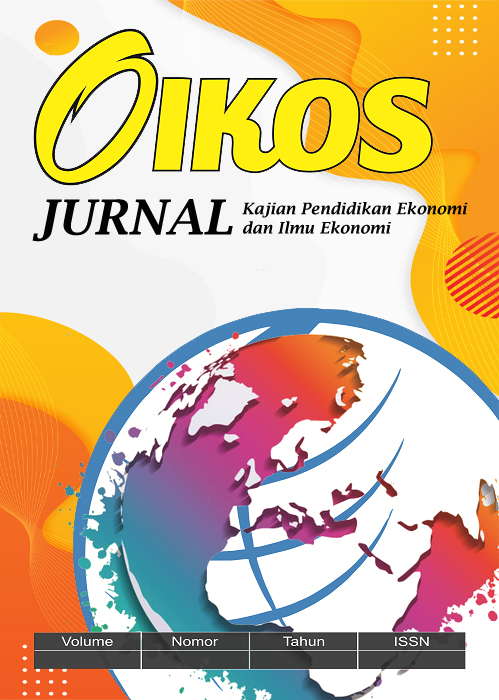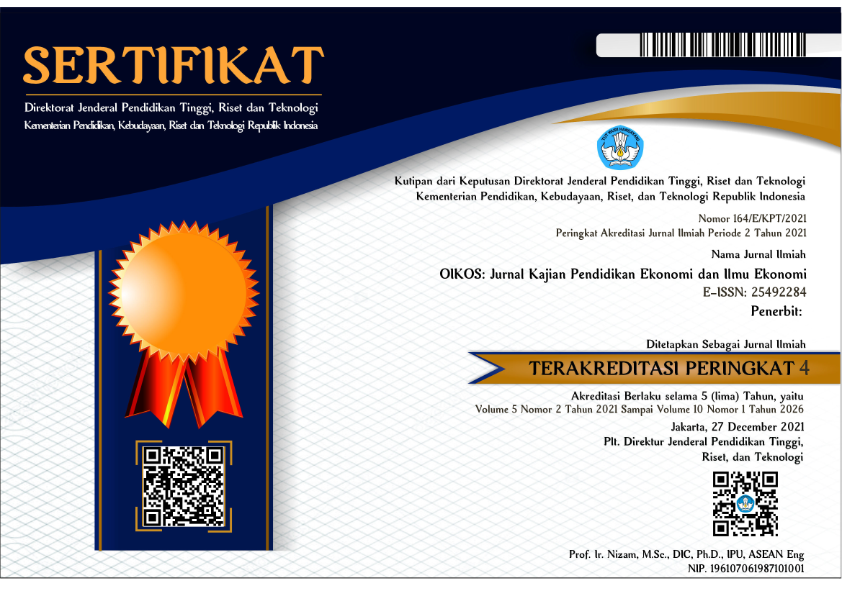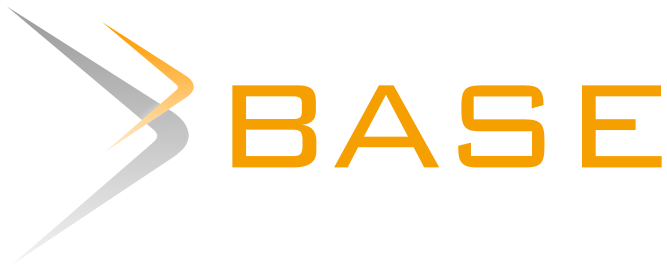E-Filing and Tax Revenue: a Role of Digital Tax Socialization
Keywords:
e-filing, digital tax socialization, tax revenue, tax authorityAbstract
This study aims to analyze the effect of the use of e-filing on the tax revenue by including the role of digital tax socialization to strengthen both relationships. The new contribution of this study is to combine literature e-filing, digital tax socialization, and tax revenue previously examined separately. For analysis, we use Moderated Regression Analysis (MRA) which was built through cross-sectional data for 7 years on the tax authorities in the regions. The study results show that e-filing has a positive effect on tax revenue. Subsequent results provide evidence that digital tax socialization can strengthen the positive effect of e-filing on tax revenue. In this study, we found that digital tax socialization directly has a negative relationship with tax revenue. The results of our study support the commitment of various countries to carry out tax reforms in a modern direction.
Downloads
References
Adkisson, R. V., & Mohammed, M. (2014). Tax structure and state economic growth during the great recession. Social Science Journal, 51(1), 79–89. https://doi.org/10.1016/j.soscij.2013.10.009
Agrawal, D. R., & Wildasin, D. E. (2019). Technology and tax systems. Journal of Public Economics, xxx(xxxx), 1–15. https://doi.org/10.1016/j.jpubeco.2019.104082
Agustini, K. D., & Widhiyani, N. L. S. (2019). Pengaruh Penerapan E-Filing, Sosialisasi PeIDRajakan, Sanksi PeIDRajakan Terhadap Kepatuhan Wajib Pajak Orang Pribadi. E-Jurnal Akuntansi, 27(2), 1343–1364. https://doi.org/10.24843/eja.2019.v27.i02.p19
Alstadsæter, A., Kopczuk, W., & Telle, K. (2019). Social networks and tax avoidance: evidence from a well-defined Norwegian tax shelter. International Tax and Public Finance, (August), 3–16. https://doi.org/10.1007/s10797-019-09568-3
Andreas, & Savitri, E. (2015). The Effect of Tax Socialization, Tax Knowledge, Expediency of Tax ID Number and Service Quality on Taxpayers Compliance with Taxpayers Awareness as Mediating Variables. Procedia - Social and Behavioral Sciences, 211(September), 163–169. https://doi.org/10.1016/j.sbspro.2015.11.024
Andreoni, V. (2019). Environmental taxes: Drivers behind the revenue collected. Journal of Cleaner Production, 221, 17–26. https://doi.org/10.1016/j.jclepro.2019.02.216
Aryati, T. (2016). Pengaruh Pemanfaatan Teknologi dan Modernisasi Sistem Administrasi PeIDRajakan Terahdap Kepatuhan Wajib Pajak Orang Pribadi. Jurnal Riset Akuntansi Dan Keuangan, 4(3), 63–77. Retrieved from http://ejournal.upi.edu/index.php/JRAK/article/view/6693/4557
Aryati, T., & Putritanti, L. R. (2016). Pengaruh Pemanfaatan Teknologi Dan Modernisasi Sistem Administrasi PeIDRajakan Terhadap Kepatuhan Wajib Pajak Orang Pribadi. Jurnal Riset Akuntansi Dan Keuangan, 4(3), 1155–1168. https://doi.org/10.17509/jrak.v4i3.4669
Bastani, S., Giebe, T., & Miao, C. (2019). Ethnicity and tax filing behavior. Journal of Urban Economics, (November), 1–67. https://doi.org/10.1016/j.jue.2019.103215
Benczúr, P., Kátay, G., & Kiss, Á. (2018). Assessing the economic and social impact of tax and benefit reforms: A general-equilibrium microsimulation approach applied to Hungary. Economic Modelling, 75(July), 441–457. https://doi.org/10.1016/j.econmod.2018.06.016
Castro, G. Á., & Camarillo, D. B. R. (2014). Determinants of tax revenue in OECD countries over the period 2001-2011. Contaduria y Administracion, 59(3), 35–59. https://doi.org/10.1016/s0186-1042(14)71265-3
Cindy, J., & Yenni, M. (2013). Pengaruh kesadaran wajib pajak, kualitas pelayanan fiskus, sanksi peIDRajakan, lingkungan wajib pajak berada terhadap kepatuhan wajib pajak orang pribadi di Surabaya. Tax & Accounting Review, 1(1), 49–54.
CNN Indonesia. (2018). https://www.cnnindonesia.com/ekonomi/20180123111039-532-270905/imf-reformasi-pajak-as-dongkrak-ekonomi-global-39-persen
Doerrenberg, P. (2015). Does the use of tax revenue matter for tax compliance behavior? Economics Letters, 128, 30–34. https://doi.org/10.1016/j.econlet.2015.01.005
Elena, V. (2015). Palette Effect of Taxes on Economic, Social and Emotional Welfare of the Citizens. Procedia - Social and Behavioral Sciences, 166, 209–215. https://doi.org/10.1016/j.sbspro.2014.12.512
Elvionita, V. (2018). Pengaruh Sosialisasi PeIDRajakan, Kualitas Pelayanan Fiskus, Pemahaman Tentang Peraturan PeIDRajakan dan Penerapan e- filing Terhadap Kepatuhan Wajib Pajak (Studi Kasus pada Wajib Pajak Orang Pribadi UMKM di Kantor Pelayanan Pajak Pratama Pekanbaru Senapela. Jom Feb, 1(1), 1–15.
Erawati, T., & Ratnasari, R. (2018). pengaruh penerapan e-filing terhadap kepatuhan wajib pajak dalam menyampaikan SPT tahunan dengan kepuasan kualitas pelayanan sebagai variabel intervening. Jurnal Akuntansi, 6(1), 1–10. https://doi.org/10.24964/ja.v6i1.427
Fazlurahman, F., & Kustiawan, M. (2016). Pengaruh Ekstensifikasi Pajak Dan Kepatuhan Wajib Pajak Terhadap Pendapatan pajak Penghasilan Wajib Pajak Orang Pribadi (Studi Pada Kpp Pratama Bandung Karees Tahun 2010-2015). Jurnal ASET (Akuntansi Riset), 5(2), 150–161. https://doi.org/10.17509/jaset.v8i2.4030
Fjeldstad, O.H. (2014). Tax and Development: Donor Support to Strengthen Tax System in Developing Countires. Public Adm. Dev, 34(3), 182-193.
Foros, Ø., Kind, H. J., & Wyndham, T. (2019). Tax-free digital news? International Journal of Industrial Organization, 66, 119–136. https://doi.org/10.1016/j.ijindorg.2018.05.006
Fu, C., Xue, M., Xu, D. L., & Yang, S. L. (2019). Selecting strategic partner for tax information systems based on weight learning with belief structures. International Journal of Approximate Reasoning, 105(November), 66–84. https://doi.org/10.1016/j.ijar.2018.11.009
Gaigné, C., Hovelaque, V., & Mechouar, Y. (2019). Carbon Tax and Sustainable Facility Location: The Role of Production Technology. International Journal of Production Economics, (November), 1–56. https://doi.org/10.1016/j.ijpe.2019.107562
Ghiaie, H., Auclair, G., & Noah Ndela Ntsama, J. F. (2019). Macroeconomic and welfare effects of tax reforms in emerging economies: A case study of Morocco. Journal of Policy Modeling, 41(4), 666–699. https://doi.org/10.1016/j.jpolmod.2019.02.005
Gnangnon, S. K. (2016). Aid for Trade and trade tax revenues in developing countries. Economic Analysis and Policy, 50, 9–22. https://doi.org/10.1016/j.eap.2016.02.002
He, S., & Wang, Z. (2017). Optimisation of an EnteIDRrise’s Production Technology Upgrade Strategy under a Carbon Tax: Pay the Tax or an Upgrade Fee? Energy Procedia, 105, 3984–3989. https://doi.org/10.1016/j.egypro.2017.03.832
Herawati, H., Tabroni, R., & Lusiana, S. (2018). Pengaruh Media Dalam Mensosialisasikan Peraturan Pajak Terhadap Pemahaman Wajib Pajak. Sistem Informasi, Keuangan, Auditing Dan PeIDRajakan, 2(2), 84–95.
Ikhsan, M., Trialdi, L., & Syahrial, S. (2005). Indonesia’s new tax reform: Potential and direction. Journal of Asian Economics, 16(6), 1029–1046. https://doi.org/10.1016/j.asieco.2005.10.004
Ilzetzki, E. (2018). Tax reform and the political economy of the tax base. Journal of Public Economics, 164, 197–210. https://doi.org/10.1016/j.jpubeco.2018.06.005
IMF. (2019). CoIDRorate Tax Reform : From Income to Cash Flow Taxes. IMF Working Paper, (April). https://doi.org/10.5089/9781484390085.001
IMF. World Economic Outlook. (2018). https://www.imf.org/en/Publications/WEO/Issues/2018/07/02/world-economic-outlook-update-july-2018
Ismail, J., Gasim, G., & Amalo, F. (2018). Pengaruh Penerapan Sistem E-Filing Terhadap Kepatuhan Wajib Pajak Dengan Sosialisasi Sebagai Variabel Moderasi (Studi Kasus Pada KPP Pratama Kupang). Jurnal Akuntansi (JA), 5(3), 11–22.
Javed, N., Saqib, E., Razaq, A., & Saeed, U. (2018). Revamping Urban Immovable Property Tax System by Using GIS and MIS: A Case Study of Reforming Urban Taxation Systems Using Spatial Tools and Technology. In Comprehensive Geographic Information Systems. https://doi.org/10.1016/b978-0-12-409548-9.09691-3
Kurniawan, M. O., Aprianto, A., & Ines, I. (2018). Pengaruh Penerapan Sistem E-Filing dan Tingkat Pemahaman PeIDRajakanTerhadap Pendapatan pajak Penghasilan Orang Pribadi Dengan Kepatuhan Wajib Pajak Sebagai Variabel Pemoderasi (Studi Kasus Pada Wajib Pajak UMKM Di Kecamatan Ilir Timur I). Balance, 3(2), 456–463.
Lado, Y. O., & Budiantara, M. (2018). Pengaruh Penerapan Sistem E-Filing Terhadap Kepatuhan Wajib Pajak Orang Pribadi Pegawai Negeri Sipil Dengan Pemahaman Internet Sebagai Variabel Pemoderasi (Studi Kasis Pada Dinas Perindutrian dan Perdagangan DIY). Jurnal Riset Akuntansi Mercu Buana, 4(1), 59–84. https://doi.org/10.26486/jramb.v4i1.498
Langer, S., & Korzhenevych, A. (2018). The effect of industrial and commercial land consumption on municipal tax revenue: Evidence from Bavaria. Land Use Policy, 77(May), 279–287. https://doi.org/10.1016/j.landusepol.2018.05.052
Larasati, A. Y., & Binekas, B. (2019). Pengaruh Tingkat Kepatuhan Wajib Pajak dan Efektivitas Program Tax Amnesty terhadap Pendapatan pajak (Studi Kasus pada Kanwil Direktorat Jenderal Pajak Jabar 1). Jurnal Akuntansi Bisnis Dan Ekonomi, 5(1), 1339–1354.
Li, H., Xiong, Z., & Xie, Y. (2018). Resource tax reform and economic structure transition of resource-based economies. Resources, Conservation and Recycling, 136(5), 389–398. https://doi.org/10.1016/j.resconrec.2018.05.014
Lin, B., & Jia, Z. (2019). Tax rate, government revenue and economic performance: A perspective of Laffer curve. China Economic Review, 56(May), 1–20. https://doi.org/10.1016/j.chieco.2019.101307
Mansor, N. H. A., Mohamed, I. S., Ling, L. M., & Kasim, N. (2016). Information Technology Sophistication and Goods and Services Tax in Malaysia. Procedia Economics and Finance, 35(October), 2–9. https://doi.org/10.1016/s2212-5671(16)00003-4
Mardan, M., & Stimmelmayr, M. (2018). Tax revenue losses through cross-border loss offset: An insurmountable hurdle for formula apportionment? European Economic Review, 102, 188–210. https://doi.org/10.1016/j.euroecorev.2017.12.007
Masruri, F. A. (2018). Pengaruh Reformasi Administrasi PeIDRajakan Terhadap Kepatuhan Wajib Pajak Orang pribadi (Studi Kasus Pada Kantor Palyanan Pajak (KPP) Pratama Sumedang). Jurnal Akuntansi Bisnis Dan Ekonomi, 4(2), 1123–1136.
Mawejje, J. (2019). Natural resources governance and tax revenue mobilization in sub saharan Africa: The role of EITI. Resources Policy, 62(April), 176–183. https://doi.org/10.1016/j.resouIDRol.2019.04.001
Mawejje, J., & Sebudde, R. K. (2019). Tax revenue potential and effort: Worldwide estimates using a new dataset. Economic Analysis and Policy, 63, 119–129. https://doi.org/10.1016/j.eap.2019.05.005
Moscoso Boedo, H. (2018). Aggregate implications of the tax reform of 2017: Can taxes guide technology? Economics Letters, 173, 6–9. https://doi.org/10.1016/j.econlet.2018.09.009
Nurlaela, L. (2017). Pengaruh Penerapan E-Filing Terhadap Kepatuhan Wajib Pajak Di KPP Pratama Garut. Jurnal Wahana Akuntansi, 2(2), 1–8.
Olivares Olivares, B. D. (2017). Technological innovation within the Spanish tax administration and data subjects’ right to access: An opportunity knocks. Computer Law and Security Review, 34(3), 1–12. https://doi.org/10.1016/j.clsr.2017.11.012
Oz-Yalaman, G. (2019). Financial Inclusion and Tax Revenue. Central Bank Review, xxx(xxxx), 1–7. https://doi.org/10.1016/j.cbrev.2019.08.004
Palupi, D. Y., & Herianti, E. (2017). Pengaruh Pemeriksaan dan Penagihan Pajak Terhadap Kepatuhan Wajib Pajak dengan Informasi Tren Media sebagai Variabel Moderating (Studi Kasus KPP Pratama Jakarta Kebayoran Baru Tiga). InFestasi, 13(1), 285–296. https://doi.org/10.21107/infestasi.v13i1.3050
Pranata, K. K., & Supadmi, N. L. (2018). Pengaruh Penerapan E-Filing pada Kepatuhan Wajib Pajak Badan dengan Biaya Kepatuhan Pajak sebagai Variabel Moderasi. E-Jurnal Akuntansi, 24(1), 633–661. https://doi.org/10.24843/eja.2018.v24.i01.p24
Pratiwi, S. A., Suryani, E., & Kurnia, K. (2018). Pengaruh Self Assesment System, Surat Tagihan Pajak dan Retribusi Pajak Pertambahan Nilai Terhadap Pendapatan pajak Pertambahan Nilai (PPN) (Studi Kasus Pada Kantor Pelayanan Pajak Pratama Cibinong Tahun 2014-2016). Jurnal Akuntansi Bisnis Dan Ekonomi, 4(2), 1201–1210. https://doi.org/10.33197/jabe.vol4.iss2.2018.181
Prawiranegara, B. (2013). Implementasi sistem administrasi peIDRajakan modern (sapm). JAWARA: Jurnal Wawasan Dan Riset Akuntansi, 1(1), 1–18.
Prichard, W., Salardi, P., & Segal, P. (2018). Taxation, non-tax revenue and democracy: New evidence using new cross-country data. World Development, 109, 295–312. https://doi.org/10.1016/j.worlddev.2018.05.014
Putri, N. E., & Putri, T. C. (2019). Keterkaitan penerapan sistem e-filing, sosialisasi peIDRajakan dan kepatuhan wajib pajak orang pribadi pada kpp pratama kebayoran baru III. Ikraith Ekonomika, 2(2), 95–104.
Rumina, U. A., Balandina, A. S., & Bannova, K. A. (2015). Evaluating the Effectiveness of Tax Incentives in Order to Create a Modern Tax Mechanism Innovation Development. Procedia - Social and Behavioral Sciences, 166, 156–160. https://doi.org/10.1016/j.sbspro.2014.12.502
Savitri, E., & Musfialdy. (2016). The Effect of Taxpayer Awareness, Tax Socialization, Tax Penalties, Compliance Cost at Taxpayer Compliance with Service Quality as Mediating Variable. Procedia - Social and Behavioral Sciences, 219, 682–687. https://doi.org/10.1016/j.sbspro.2016.05.051
Schafferer, C., Yeh, C. Y., Chen, S. H., Lee, J. M., & Hsieh, C. J. (2018). A simulation impact evaluation of a cigarette excise tax increase on licit and illicit cigarette consumption and tax revenue in 36 European countries. Public Health, 162, 48–57. https://doi.org/10.1016/j.puhe.2018.05.017
Setiawan, D., Kurniawan, B., & Payamta, P. (2018). Dampak penggunaan e-filling terhadap kepatuhan wajib pajak: peran perilaku wajib pajak sebagai variabel mediasi. Jurnal Akuntansi & Auditing Indonesia, 22(1), 12–24. https://doi.org/10.20885/jaai.vol22.iss1.art2
Shi, J., Tang, L., & Yu, L. (2015). Economic and environmental effects of coal resource tax reform in China: Based on a dynamic cge approach. Procedia Computer Science, 55, 1313–1317. https://doi.org/10.1016/j.procs.2015.07.114
Siahaan, S., & Halimatusyadiah, H. (2018). Pengaruh Kesadaran PeIDRajakan, Sosialisasi PeIDRajakan, Pelayanan Fiskus, dan Sanksi PeIDRajakan terahdap Kepatuhan Wajib Pajak Orang Pribadi. Jurnal Akuntansi, 8(1), 1–13.
Silaen, C. (2015). Pengaruh Sistem PeIDRajakan, Diskriminasi, Teknologi Dan Informasi PeIDRajakan Terhadap Persepsi Wajib Pajak Mengenai Etika Penggelapan Pajak (Tax Evasion). Jurnal Online Mahasiswa Fakultas Ekonomi Universitas Riau, 2(2), 1–15.
Sivadasan, J., & Slemrod, J. (2008). Tax law changes, income-shifting and measured wage inequality: Evidence from India. Journal of Public Economics, 92, 2199–2224. https://doi.org/10.1016/j.jpubeco.2008.04.001
Stoilova, D. (2017). Tax Structure and Economic Growth: Evidence From the European Union. Contaduria y Administracion, 62(3), 1041–1057. https://doi.org/10.1016/j.cya.2017.04.006
Suárez Serrato, J. C., & Zidar, O. (2018). The structure of state coIDRorate taxation and its impact on state tax revenues and economic activity. Journal of Public Economics, 167, 158–176. https://doi.org/10.1016/j.jpubeco.2018.09.006
Suherman, M., Almunawwaroh, M., & Marliana, R. (2015). Pengaruh Penerapan E-filingn Terhadap Kepatuhan Wajib Pajak Dalam Penyampaian Surat Pemberitahuan (Spt) Tahunan Pada Kantor Pelayanan Pajak Pratama Kota Tasikmalaya. Media Riset Akuntansi, Auditing & Informasi, 15(1), 49–64. https://doi.org/10.25105/mraai.v15i1.1649
Suprayogo, S., & Hasymi, M. (2018). Pengaruh Penerapan Sistem E-Filing Terhadap Kepatuhan Wajib Pajak Orang Pribadi Dengan Pemahaman Internet Sebagai Variabel Moderasi Pada Kantor Pelayanan Pajak Pratama Jakarta Jatinegara. Profita: Komunikasi Ilmiah Akuntansi Dan PeIDRajakan, 11(2), 151–164. https://doi.org/10.22441/profita.2018.v11.02.001
Suryani, L. (2019). Tekonologi Informasi, Profesionalisme Account Representative dan Aplikasi E-Tax Terhadap Pendapatan pajak. Jurnal Ilmiah Akuntansi Universitas Pamulang, 7(1), 26–45. https://doi.org/10.32493/jiaup.v7i1.2202
Swanepoel, A. S., & Schoeman, N. J. (2002). Tax revenue as an automatic fiscal stabiliser: A South African perspective. South African Journal of Economic and Management Sciences, 5(3), 566–588. https://doi.org/10.4102/sajems.v5i3.2742
Tiefenbach, T., & Kohlbacher, F. (2015). Disasters, donations, and tax law changes: Disentangling effects on subjective well-being by exploiting a natural experiment. Journal of Economic Psychology, 50, 94–112. https://doi.org/10.1016/j.joep.2015.07.005
Vilaça, G. V. (2012). Interdisciplinarity and tax law: The case of legal autopoiesis. Critical Perspectives on Accounting, 23(6), 483–492. https://doi.org/10.1016/j.cpa.2012.04.002
Wibisono, G. (2019). Media Baru dan Nasionalisme Anak Muda: Pengaruh Penggunaan Media Sosial ‘Good News From Indonesia’ Terhadap Perilaku Nasionalisme. Jurnal Studi Pemuda, 6(2), 590–604. https://doi.org/10.22146/studipemudaugm.39264
Yücedoğru, R., Boz, A., Öner, S., Saygı, H. E., & Dibek, E. (2018). How Taxpayers React to Tax Increase? A Qualitative Analysis on Motivation Factors Towards Tax Increase on Social Media. International Journal of Public Finance, 3(2), 161–192. https://doi.org/10.30927/ijpf.451371
Zeida, T. H. (2019). On the coIDRorate tax reform: Coordination and trade-offs. Journal of Macroeconomics, 62(june). https://doi.org/10.1016/j.jmacro.2019.103156
Zhang, Z., & Li, Y. (2011). The impact of carbon tax on economic growth in China. Energy Procedia, 5, 1757–1761. https://doi.org/10.1016/j.egypro.2011.03.299
Downloads
Published
Issue
Section
License
Copyright (c) 2024 OIKOS: Jurnal Kajian Pendidikan Ekonomi dan Ilmu Ekonomi

This work is licensed under a Creative Commons Attribution 4.0 International License.









